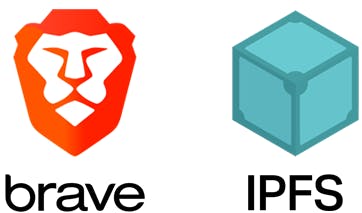Like many other internet users today, I too was a daily user of Google Chrome web browser. The syncing of data from my Gmail, Google Pay, several social media accounts and more was just too convenient for me to see a reason to abandon it. This was until I evaluated this very concept that I saw as an advantage and realised it was dangerous and unethical. The convenience of having all of your information available to websites and applications should alarm people, as the fact is the websites which you visit (and login to using the innocent 'continue with google' option) are accessing your web activity and selling on this data on for profits and most people are completely unaware of it. This contributes to the major internet imbalance of the rich getting richer and genuine publishers losing out.
Brave offers a big step in the right direction of taking back the internet out of the hands of internet giants and creating a better ecosystem for all. I will point out three aspects of Brave's functionality that set it apart from other browsers and prove it is a truly privacy based browser.
Brave Shields
Shields can be used and customised to a users preference to allow ease of browsing, whilst constantly blocking various trackers that attempt to follow your web activity. This process will inevitably increase the speed at which you are able to browse on desktop and mobile versions. Cookies that are not associated with websites you are specifically visiting are discarded by shields, which in turn gives your browser a higher level of anonymity due to there being less of a trail behind you. If a website supports a secure connection, Brave Shields can automatically utilise this when you access the site. An increasingly common form of malicious code roaming the internet are scripts that attempt to use your computer's power to mine various cryptocurrencies. Shields are designed to recognise and stop this kind of code from infiltrating your machine. Although some sites can be disabled by leaving all shields on, this can be configured to allow the sites you trust to function without shields up, without leaving you exposed as soon as you leave the page.
 Tor Connectivity
Tor Connectivity
Having a private browsing window is one thing; you can trust that incognito window in Chrome as much as you like, but it will not run your connection through any chain of nodes for anonymity. This is where private windows with Tor come in. I will not explain the functional workings of the Tor network and onion routing here, as this is a concept best understood on its own (I intend to write about it for user's general knowledge). The only potential downside, which is more of a trade-off than a negative point, is that due to data travelling through many relays in the Tor network the speed of your browsing may be slower than usual. Again, personally I see this as a trade-off for the convenience of using a Tor window for high anonymity while browsing without using the full Tor network whilst running a specific OS to have absolute anonymity.
 IPFS Support
IPFS Support
My favourite development of Brave is the recent support of IPFS (InterPlanetary File System) from Protocol Labs. In a nutshell, IPFS aids content creators in spreading their content to bigger audiences without the costs of using high speed internet by utilising local nodes. Using a geographical swarm style network to distribute content supports the expansion of blockchain technology, which in turn is vital for the integrity of data moving around the internet. In global decentralised networks such as Ethereum, smart contracts can easily address creator content. Therefore, it is a much more sensible use of data and storage to use a URI (Uniform Resource Identifier) to point to the content through IPFS, storing the content on the blockchain as a hash (Content Identifier). This enables access to content from any IPFS node in the swarm network. DApps (Decentralised Applications) can also be accessed through the IPFS. The integration of this network into Brave browser truly offers a far more decentralised browsing ability to the average internet user, if they choose to accept it.
So, the decision is yours. Knowing that using centralised browsers such as Google Chrome offer you next to no genuine anonymity online and the discussed prioritised data integrity factors of Brave browser, will you still choose to sell on the virtual data representation of yourself for a loss? Today we can clearly observe ourselves being virtually integrated in many different ways, tomorrow we may not be able to identify what is truly virtual at all anymore. One should ask themselves deeply, have these lines already been blurred to the point of compromising integrity online?
Something to ponder for the average internet user.
